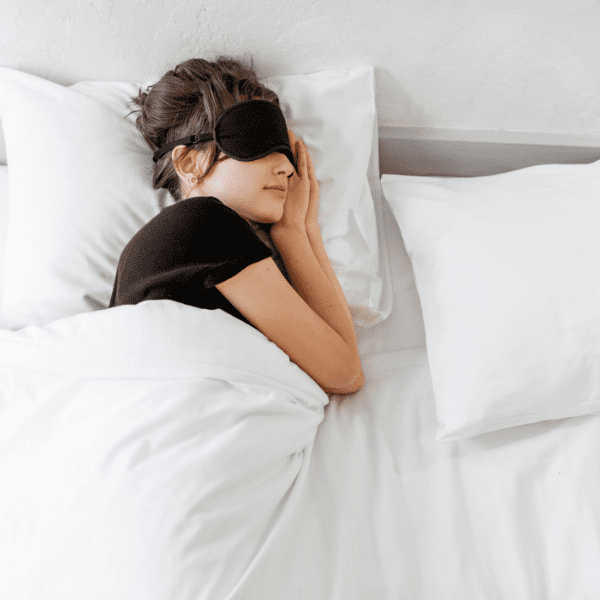Caffeine is a naturally occurring stimulant which can be found in many foods and drinks. Whilst most of us struggle without our morning coffee, too much caffeine can cause a range of negative side effects. So, exactly how much caffeine should we be having each day and how can we tell if we’ve had too much?
What Is Caffeine?
Caffeine is a bioactive compound which acts on the central nervous system, meaning that it can affect our brain and behaviour. This is the reason why it is known for its effects on alertness. It’s thought that caffeine may also possess antioxidant and anti-inflammatory properties which can be beneficial for our health.
How Much Caffeine Can I Have?
Caffeine has been studied and evaluated to ensure that it is safe for human consumption. 2
- It is recommended that adults consume no more than 400mg per day.
- Pregnant and breastfeeding women are recommended to limit intake to 200mg a day to ensure the safety of the growing foetus and infant.
- In children and adolescents its intake should be limited due to the potential effects on anxiety and behaviour.

Is Caffeine Healthy?
The Positives:
Within recommended levels, caffeine is safe for consumption and caffeinated coffee can play a part within a healthy diet. This may be in part due to the effects of caffeine itself as well as some other bioactive compounds found in coffee. 3
Ingesting foods or drinks containing caffeine can help us to improve our mental processing and is associated with increased alertness & increased attention. (4) Caffeine can also be used as an ergogenic aid to improve sports performance. In moderate doses it can exert beneficial effects on both short term, high intensity activities as well as endurance exercises. 5
It can also benefit our brains in other ways. For example caffeine ingestion has been associated with increased memory, improved reaction time, improved sentence verification accuracy and reduced mental fatigue. Consuming caffeine in moderate amounts may also reduce the risk of depression, (6) and may reduce the risk of developing neurological diseases such as Alzheimers. 7,8
The Negatives:
However, as with most things, too much of a good thing can lead to unwanted effects. Some people are more sensitive to the effects of caffeine than others. Caffeine sensitive individuals may experience unwanted symptoms such as agitation, nervousness, excitement or insomnia with the same dose of caffeine that may be well tolerated by others. (9) Drinking too much caffeine, for example more than 4 cups of coffee per day, may increase blood pressure. If you have a high caffeine intake, considering cutting down may be beneficial. 10
Sleep quality can be altered by caffeine intake which is why many people avoid drinking coffee later in the day or in the evening. If you are working to improve your sleep hygiene, assessing your caffeine intake throughout the day could help you identify whether this may be having an effect. 11
Caffeine can be part of a healthy diet, but if you are needing lots of caffeine to stay alert and awake; this may be a sign that something else in your lifestyle is lacking and causing you to feel tired.

How Much Caffeine Is In A Coffee?
The amount of caffeine in your favourite foods and drinks might surprise you…
- 100mg in a mug of instant coffee
- 140mg in a mug of filter coffee
- 75mg in a mug of tea
- 40mg in a can of cola
- 80mg in a 250ml can of energy drink
- 25mg in a 50g bar of plain dark chocolate
- 10mg in a 50g bar of plain milk chocolate
{The amount of caffeine in each may vary depending on many different factors. Source: NHS Choices}
Are There Any Alternatives To Caffeine?
To maintain healthy energy levels throughout the day it is important to prioritise sleep and manage your stress levels, as well as consume a healthy and balanced diet. A healthy diet is one that contains adequate nutrients such as iron and B vitamins, as well as adequate calories. It’s important to consume sources of lean and plant-based protein, complex carbohydrates, fruits and vegetables, some dairy or dairy-alternative products and healthy fats such as; nuts, seeds, olive oil and rapeseed oil.
Consuming regular meals can also help to maintain our energy levels, and maintain a steady blood sugar level. Limiting foods that are high in simple sugars such as; sugar sweetened drinks, sweets, cakes etc can help us to maintain steady blood sugar levels throughout the day.
Summary
- Caffeine can act as part of a healthy and balanced diet. Try to consume less than 400mg per day.
- Too much caffeine has the ability to affect sleep, anxiety levels and could lead to high blood pressure.
- There are strategies that we can implement to maintain healthy energy levels without the need for caffeine.
- EFSA. “Scientific Opinion on the Safety of Caffeine.” Scientific Opinion on the Safety of Caffeine. 2015. Web. 29 July 2021.
- Why did EFSA carry out its risk assessment? [cited 2021 Aug 12]; Available from: www.efsa.europa.eu
- Van Dam RM, Hu FB, Willett WC. Coffee, Caffeine, and Health. Campion EW, editor. N Engl J Med [Internet]. 2020 Jul 23 [cited 2020 Jul 26];383(4):369–78. Available from: http://www.nejm.org/doi/10.1056/NEJMra1816604
- Scientific Opinion on the substantiation of a health claim related to caffeine and increased alertness pursuant to Article 13(5) of Regulation (EC) No 1924/2006. EFSA J. 2014 Feb 1;12(2).
- Calvo JL, Fei X, Domínguez R, Pareja-Galeano H. Caffeine and cognitive functions in sports: A systematic review and meta-analysis [Internet]. Vol. 13, Nutrients. MDPI AG; 2021 [cited 2021 May 18]. p. 1–18. Available from: https://pubmed.ncbi.nlm.nih.gov/33800853/
- Wang L, Shen X, Wu Y, Zhang D. Coffee and caffeine consumption and depression: A meta-analysis of observational studies. Aust N Z J Psychiatry [Internet]. 2016 Mar 1 [cited 2021 May 18];50(3):228–42. Available from: https://pubmed.ncbi.nlm.nih.gov/26339067/
- Hong CT, Chan L, Bai CH. The effect of caffeine on the risk and progression of parkinson’s disease: A meta-analysis. Nutrients [Internet]. 2020 Jun 1 [cited 2021 May 18];12(6):1–12. Available from: https://pubmed.ncbi.nlm.nih.gov/32580456/
- Chen JQA, Scheltens P, Groot C, Ossenkoppele R. Associations between Caffeine Consumption, Cognitive Decline, and Dementia: A Systematic Review [Internet]. Vol. 78, Journal of Alzheimer’s Disease. IOS Press BV; 2020 [cited 2021 May 18]. p. 1519–46. Available from: https://pubmed.ncbi.nlm.nih.gov/33185612/
- Gilliland K, Andress D. Ad lib consumption, symptoms of caffeinism, and academic performance. Am J Psychiatry [Internet]. 1981 [cited 2021 May 18];138(4):512–4. Available from: https://pubmed.ncbi.nlm.nih.gov/7212112/
- Farag NH, Vincent AS, Sung BH, Whitsett TL, Wilson MF and Lovallo WR, 2005b. Caffeine tolerance is incomplete: Persistent blood pressure responses in the ambulatory setting. American Journal of Hypertension, 18, 714–719
- Burke, T. M., Markwald, R. R., McHill, A. W., Chinoy, E. D., Snider, J. A., Bessman, S. C., Jung, C. M., O’Neill, J. S., & Wright, K. P., Jr. (2015). Effects of caffeine on the human circadian clock in vivo and in vitro. Science translational medicine, 7(305), 305ra146.https://doi.org/10.1126/scitranslmed.aac5125

